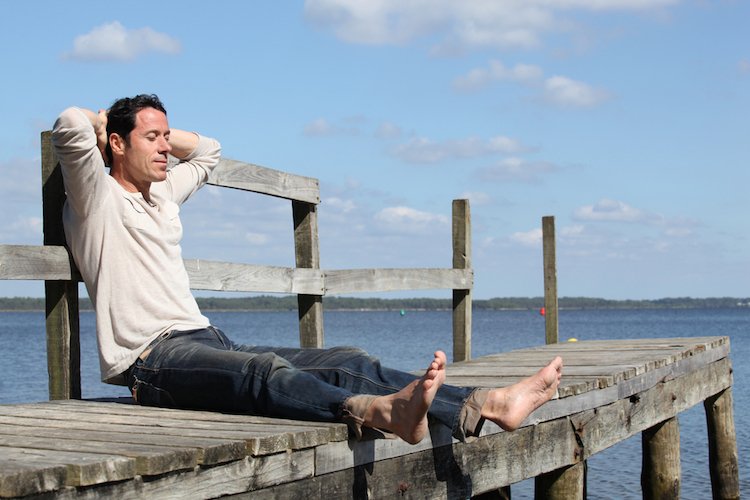Researchers are exploring how our everyday thoughts and feelings contribute to our well-being. By Kira M. Newman on behalf of Greater Good Science Center.
Last month, researchers from over 60 countries gathered at the International Positive Psychology Association’s 6th World Congress in Melbourne, Australia, to share cutting-edge insights on the science of well-being.
Their findings added depth and complexity to our understanding of the major keys to a flourishing life. In Melbourne, we heard about when kindness makes us happier — but also when it doesn’t. We learned how the elderly can be meaningfully engaged in helping others. We discovered many concrete ways to boost our sense of meaning in life, and how cultural differences influence the pursuit of happiness. Researchers also addressed modern obstacles to happiness — from the way we’re hooked on technology to a widespread sense of disconnection and loneliness.
RELATED: 11 things to do if you're feeling lonely
However, there were several insights presented at the World Congress that stood out to me as new or surprising. Here are some of the emerging pathways to well-being that positive psychology is just beginning to explore, and the exciting potential they might hold.
1. Positive solitude
Researchers have repeatedly found that social connection is one of the keys to happiness. And for many of us, feeling separated from other people translates into a sense of loneliness and disconnection. But does solitude have to be a negative experience? Can time alone feed our well-being?
Researchers Martin Lynch, Sergey Ishanov, and Dmitry Leontiev at Russia’s National Research University Higher School of Economics have investigated the phenomenon of positive or “productive solitude,” in contrast with the more unpleasant experience of being alone. Productive solitude doesn’t occur because we feel disconnected from others; it’s something that we deliberately seek out. Rather than being lonely or ruminating on negative experiences, we use the solitary time for contemplation, reflection, or creativity.
People who experience positive solitude tend to feel more positive emotions — in particular, the low-energy ones like relaxation and calm. According to research by Leontiev, when these people do find themselves alone, they have a greater sense of pleasure and meaning — and less of a sense of void. Alone time: positive solitude shutterstock/phovoir
Alone time: positive solitude shutterstock/phovoir
What kind of people enjoy their alone time? Positive solitude seems to come more naturally to those who are more introverted or higher in emotional and psychological maturity.
What if you don’t have those traits? We might see more benefit in solitude if we deliberately schedule alone time for doing something we enjoy, for example, or spend our solitary time in the peaceful and welcoming setting of nature. Future research may uncover other ways for all of us to cultivate new attitudes toward solitude so we can appreciate it more — and be happier for it.
2. Feeling active
One of the traditional surveys that researchers use to measure positive emotions includes a peculiar statement: “I feel active.” For researcher Sarah Pressman, that didn’t quite seem like a positive emotion — not the way other feelings like “grateful” or “happy” are — so she decided to investigate it further.
Past research would suggest that people who experience more positive emotions are healthier in various ways — for example, they have stronger immune systems, exercise more, have a lower risk of heart disease, and even live longer. But what role does feeling “active” play in our health and well-being?
A significant one, it turns out. According to analyses by Pressman and her colleagues, feeling active accounted for a sizable portion of the link between positive emotions and different measures of health. (For men, feeling active was the positive emotion that predicted how long they would live.) But feeling active didn’t exactly correspond to how much physical activity people engaged in.
“Rather than being lonely or ruminating on negative experiences, positive solitude uses time for contemplation, reflection, or creativity.”
In other words, it doesn’t just matter how physically active we are, but how active — how energetic, vigorous, and vital— we feel. That’s a psychological state that researchers should pay more attention to, Pressman believes. The little we know comes from the workplace, where studies have described the phenomenon of “relational energy”: how some people excite and energize us while others leave us drained and exhausted.
But what makes us feel active and how else is that beneficial? It remains to be determined who these energetic people are, and whether we can all get happier by boosting the pep in our step.
3. Future-mindedness
As we pursue happiness, we often ponder the future — and the kinds of things that will make us feel good tomorrow or next year. Even though our predictions aren’t always accurate, the simple act of contemplating the future might be a key to well-being.
According to social psychologist Roy Baumeister, happy and optimistic people tend to think about the future more often than their less-upbeat counterparts. Thinking about the future seems to come in two flavors: First, we dream big and imagine fantasy outcomes; then, we “get real” and come up with pragmatic plans.
 Future first: daydreaming ahead shutterstock/Ollyy
Future first: daydreaming ahead shutterstock/Ollyy
Thinking about the future is useful personally and in our relationships. For example, research suggests that people whose minds tend to wander toward the future develop more concrete goals. And if you’re having a conflict with a romantic partner, looking at it from a future perspective — imagining how you would think about it one year from now — could lead to less blame, more forgiveness, and greater well-being in your relationship.
When the process of imagining positive futures (and how to bring them about) goes awry, we may be at risk of mental health issues. Researchers have suggested that faulty future-mindedness — envisioning a darker future for yourself — contributes to depression, anxiety, and other disorders.
For this reason, perhaps, many popular therapies — such as future-oriented therapy, hope therapy, solution-focused therapy, and cognitive-behavioral therapy — help clients improve the way they think about the future. If you want to improve your future-mindedness without therapy, another option is to journal about new doors that have opened or might open in your life.
RELATED: Gratitude journals – travels to our interior
According to Martin Seligman, a pioneer of the field of positive psychology, people and societies themselves may be becoming more future-minded today. We are thinking not just about what we can achieve in the future ourselves, but what we can all achieve together. For the attendees of the World Congress, at least, that means spreading the knowledge and practice of well-being to more and more people, in the hopes of creating a better world for everyone. ●
Main image: shutterstock/asife
 This article originally appeared on Greater Good, the online magazine of the Greater Good Science Center at UC Berkeley. happiness.com is honoured to republish it with the kind permission of the Greater Good Science Center. greatergood.berkeley.edu
This article originally appeared on Greater Good, the online magazine of the Greater Good Science Center at UC Berkeley. happiness.com is honoured to republish it with the kind permission of the Greater Good Science Center. greatergood.berkeley.edu




Join the conversation
You are posting as a guest. If you have an account, sign in now to post with your account.